
Māori youth
contribute to a new
definition of wellbeing
Home
Stories
Māori youth contribute to a new definition of wellbeing
Tuimaleali'ifano Fiso leans forward against the podium, clasps her hands together, and sings.
“I used to wake up some days and wish I’d stayed asleep. I went to bed on top of the world. Today, the world’s on top of me.”
This lyric – originally performed by Beyoncé in the 2003 musical The Fighting Temptations – contains an important lesson. To Tuimaleali'ifano, wellbeing is not a fixed state. Instead, explains the 18-year-old Te Reo Māori and cultural anthropology student, wellbeing varies day to day.
Tuimaleali'ifano was speaking at the launch of Te Hiringa Tamariki, a new wellbeing model developed by UNICEF New Zealand. The model is based on interactions with 500 Māori rangatahi, 300 of whom were surveyed.
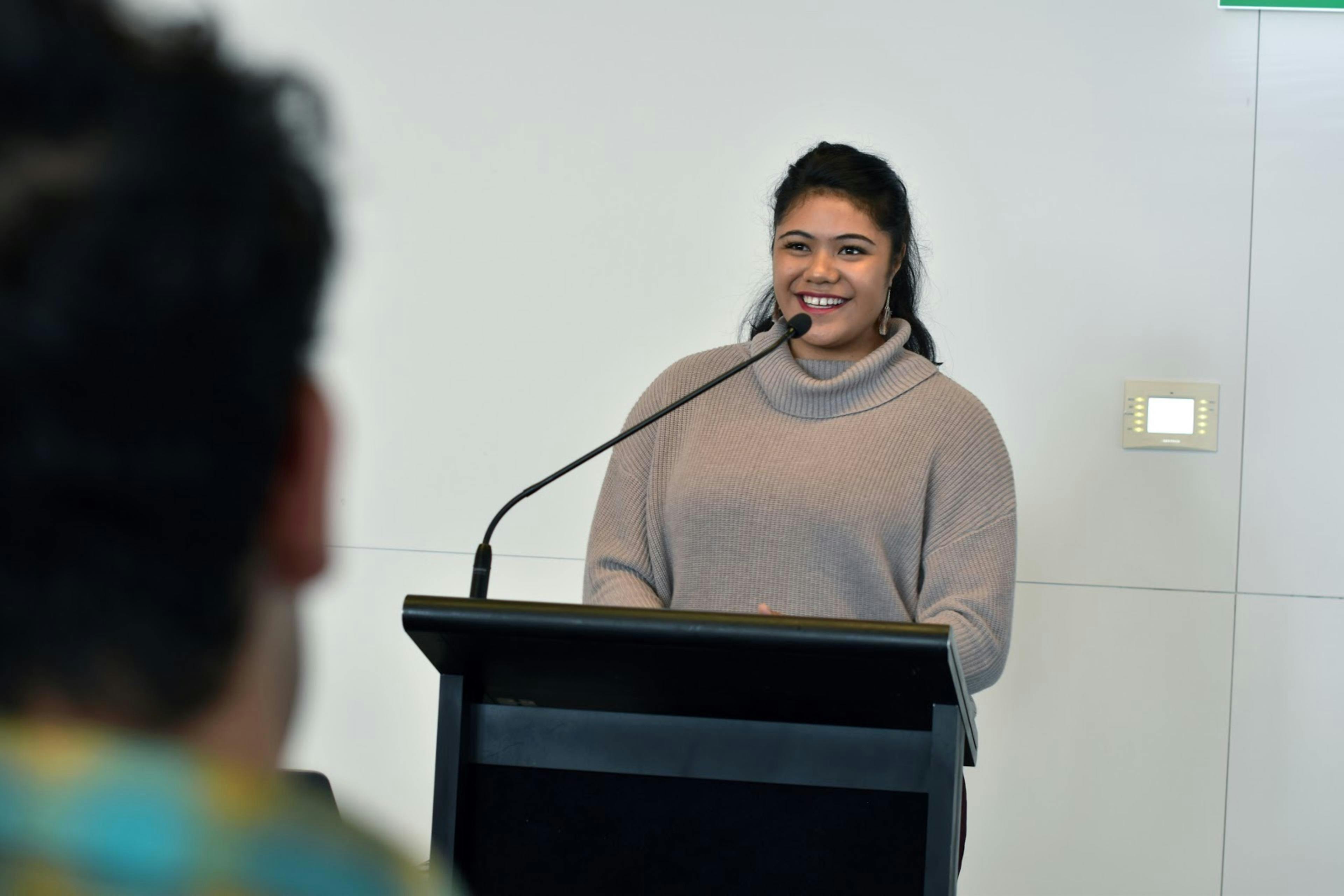
Te Hiringa Tamariki explores wellbeing across four domains: Atua (religion and spirituality), Pakanga (connections, especially amongst whānau), Te Ao (navigating two cultures or “worlds”) and Ihi (arts, literature, culture and sport).
What factors does Tuimaleali'ifano believe determine her wellbeing? She spoke about whanaungatanga, or creating connections and building communities, as being vital.
“I was taught to look out for other people as if they were my family,” she said. “I believe a feeling of disconnection is the root of an unbalanced wellbeing."
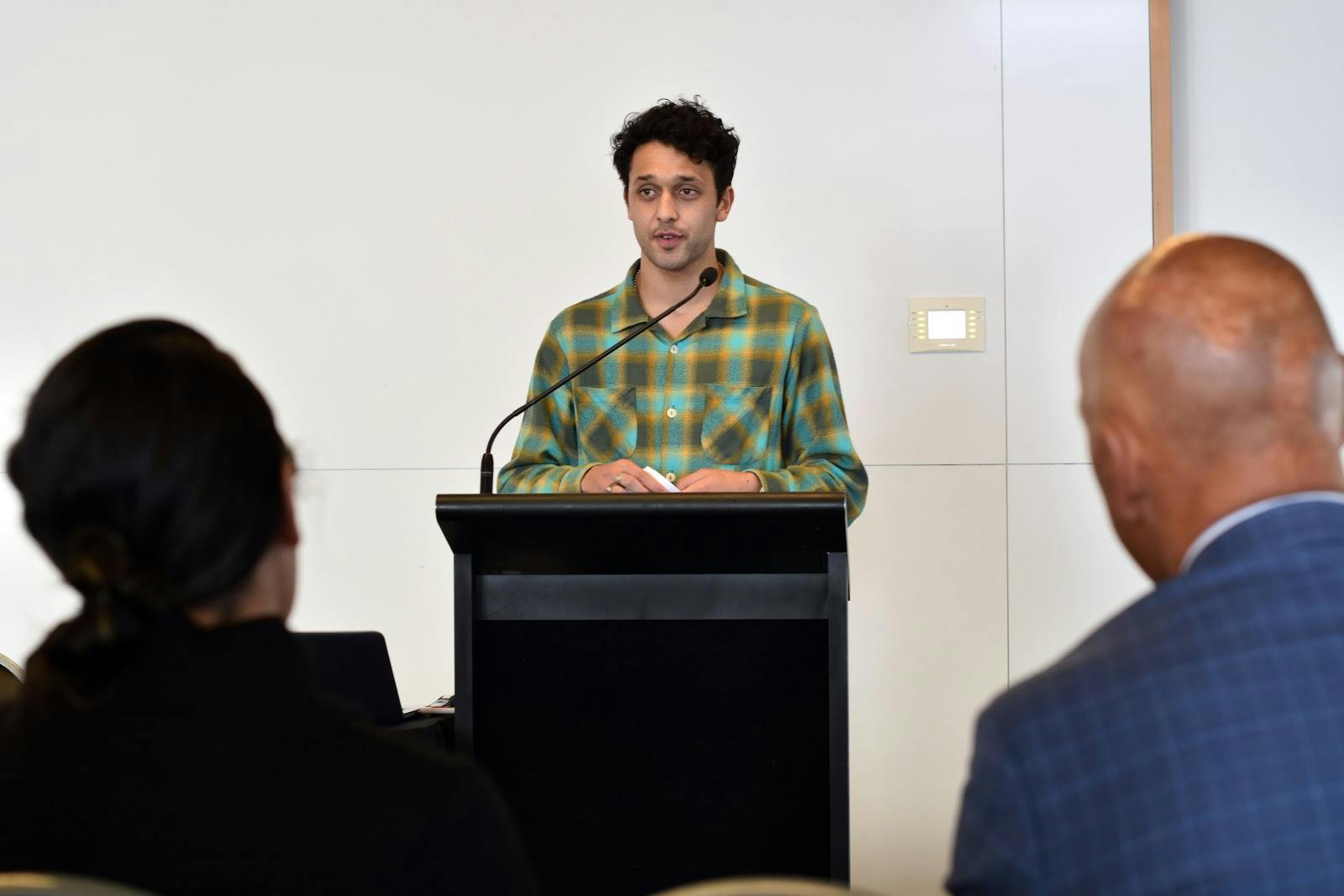
This belief was echoed in findings from the research, as 70 per cent of rangatahi said they spent a lot of time alone. And while 80 per cent of them felt there was someone at home with whom they could talk, 34 per cent found actually speaking to someone at home difficult.
20-year-old student Finlay Johnson spoke about tūrangawaewae, or a sense of belonging, and how urbanisation was a barrier for Māori youth.
“They are often growing up in urban environments, away from their ancestral lands. It can be hard to maintain a connection to extended whānau, and the hapū.
“It can be hard to maintain connections to the culture.”
The survey found 90 per cent of tamariki wanted to learn more about their ancestors, and 82 per cent said visiting their marae was important.
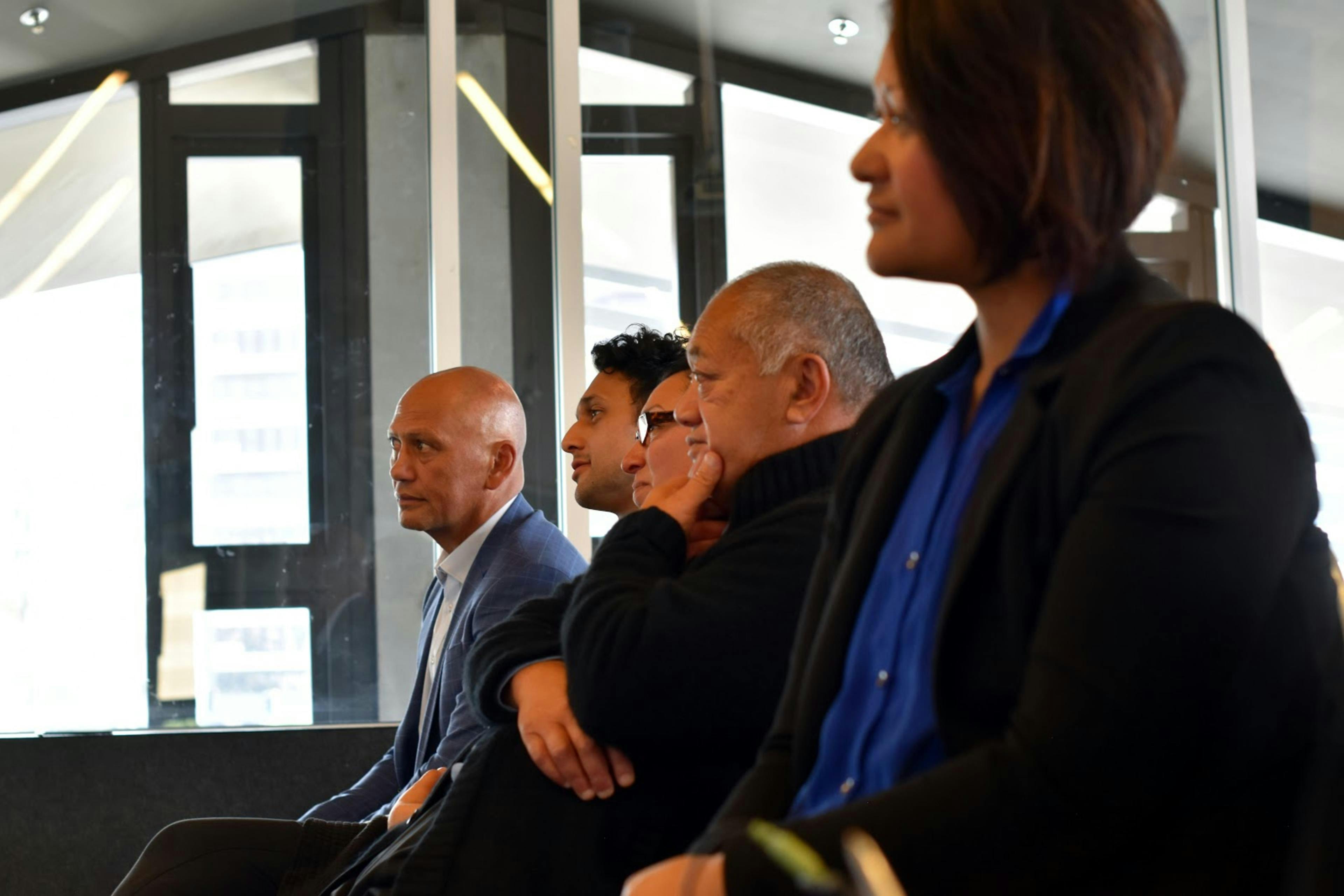
But the survey also found that spirituality for young Māori was evolving, incorporating aspects of Christianity, Māori spirituality and mindfulness.
Around 40 per cent of rangatahi said they practised meditation, for instance.
Finlay believed young Māori often struggled to find a place of belonging, and sometimes that was because there were too many options.
“It’s hard when there are so many paths open in front of you,” he explained. “I think we can help by trying to give rangatahi a sense of direction based on their strengths, not their weaknesses."
Forty per cent of rangatahi disagreed with the statement I feel good about myself. UNICEF New Zealand Director of Child Rights Andre Whittaker said this was a major concern.
“What concerns us is rangatahi feel their Māori culture is not acknowledged adequately by teachers and as a consequence, they struggle to be successful in school.”
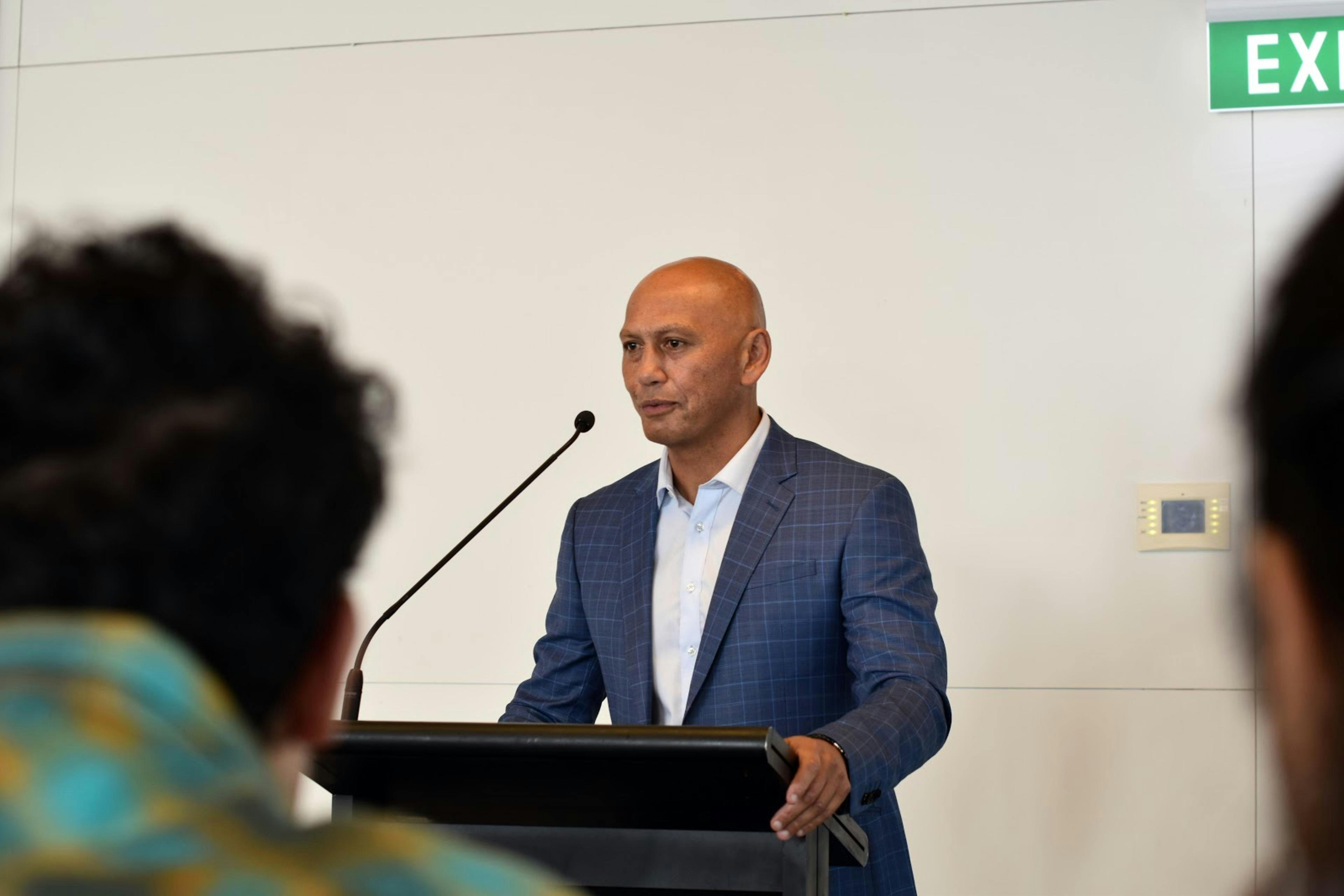
“Caring for New Zealand children must start with tamariki Māori,” says Whittaker. “They are currently falling behind their non-Māori peers in health, education, and other areas.”
The wellbeing model recommended interventions in school settings, aimed at lifting the self-confidence of young Māori and enabling them to recognise their abilities and talents.
For some, an acknowledgement of culture could be as simple as pronouncing their name correctly.
Going through the mainstream Wellington school system as half-Māori and half-Samoan, Tuimaleali'ifano was used to correcting people’s pronunciation of her name.
She explained to those gathered how to pronounce her name, and asked them to repeat after her (“tui-malea-li’i-fano, it’s not that hard when you break it down!”).
"Often people just say my last name, or just come up to me and start the conversation. I used to be offended, but I got used to it. But it does affect the way I feel about my culture."
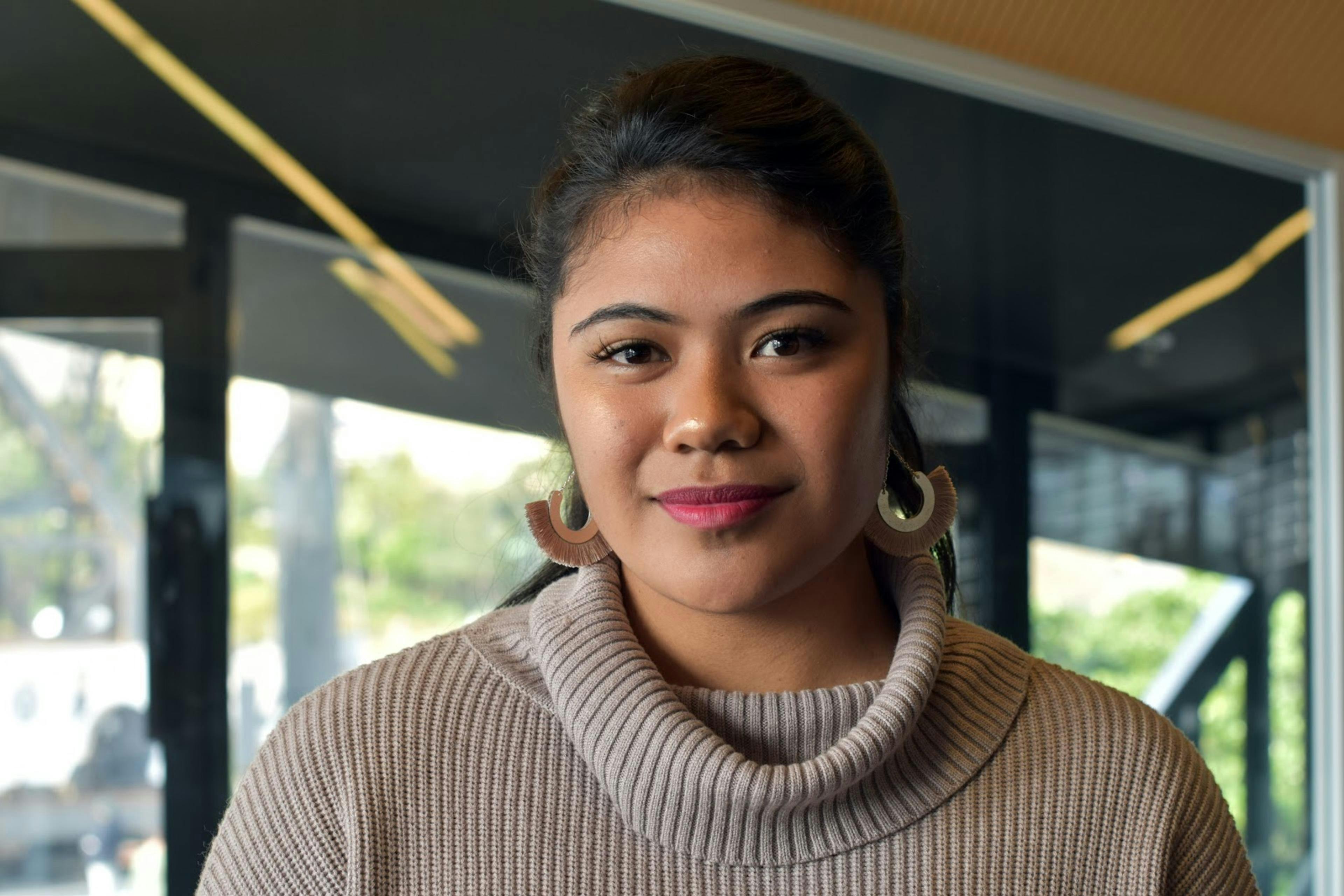
The research found that while interest in Māori culture and identity was high, disinterest in reading and sport was significant (43 per cent didn’t care about sport, while 37 per cent didn’t like reading books).
Findings from the research will be implemented as part of a pilot programme at Te Papapa School in Onehunga, Auckland.
More hui are planned for Christchurch, Wellington, Hastings and Auckland with Māori stakeholders to review findings, as well as a survey co-designed with young Māori to explore diversity, racism and bias.
By Ethan Donnell, UNICEF New Zealand